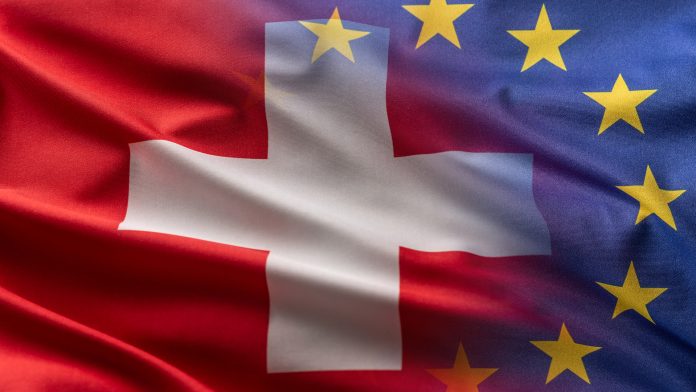The EU and Switzerland have announced they have launched negotiations to strengthen bilateral relations in a move that will boost Switzerland’s participation in Horizon Europe.
Previously, Swiss involvement in Horizon Europe, the world’s largest research programme, has been limited due to the country’s ‘third country’ status. Now, the EU and Switzerland are working to strengthen ties that will provide various benefits to both parties.
Launched by European Commission President Ursula von der Leyen and President of the Swiss Confederation Viola Amherd, the talks follow the adoption of EU and Switzerland negotiating mandates on 8 and 12 March.
These mandates authorise the Commission and Switzerland to discuss a package detailed in the Common Understanding, endorsed by the Swiss Federal Council and the EU Commission in November last year, which details both sides’ intent to conclude the negotiations in 2024.
von der Leyen expressed the significance of deepening the EU-Switzerland relationship: “Today is the beginning of a new chapter in our relationship with Switzerland based on a renewed trust and engagement between partners and neighbours.
“I am glad that negotiations on our modernised partnership can finally start building on our Common Understanding. That is great news for the mutual benefit of European and Swiss citizens and businesses.
“I look forward to the finalisation of the negotiations this year to bring us even closer together allowing both sides to fully benefit from the potential of our relationship.”
History of Switzerland’s involvement in Horizon Europe
Switzerland boasts a long history of collaboration with the European Union in research and innovation. This collaboration extends back to 1987, when Switzerland began participating in the EU’s Framework Programmes (FP) for research.
In January 2017, Switzerland gained complete association with all parts of Horizon 2020, the previous iteration of the current programme. This association allowed Swiss researchers and companies to compete for EU funding and lead research projects across Europe.
Non-associated third country status
However, Switzerland’s participation status changed with the launch of Horizon Europe in 2021. Negotiations between Switzerland and the EU regarding a broader set of bilateral agreements stalled, leading the European Commission to downgrade Switzerland to a non-associated third country. This means Swiss participation in Horizon Europe is restricted.
Limited participation for Swiss researchers
Despite the shift in status, there are still opportunities for Swiss researchers. They can participate in roughly two-thirds of Horizon Europe’s calls for proposals, but with limitations.
Additionally, Switzerland itself provides funding to support its researchers and innovators in their endeavours within the programme.
Looking forward: A possible return to association?
The Swiss government remains committed to regaining full association with Horizon Europe before the programme concludes in 2027.
Under the proposed agreement, Switzerland will be able to participate in a range of EU programmes, including Horizon Europe.
Maroš Šefčovič, Executive Vice-President for European Green Deal, Interinstitutional Relations and Foresight, commented: “We have an opportunity to jointly upgrade and future-proof our partnership while deepening cooperation in areas of mutual interest.
“This would also be a win-win in the current geopolitical reality where our shared values are under increased pressure. The Commission is committed to strengthening the current momentum by going full steam ahead, with the objective to conclude the negotiations this year.”
Additionally, the agreement opens the possibility for Swiss entities to apply for the European Research Council calls opening in 2024.
To learn more about the transformative opportunities provided through Horizon Europe and the leading projects receiving funding, read our Horizon Europe eBook.





